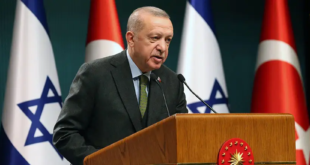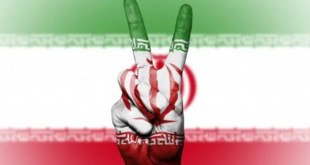WASHINGTON (Reuters) – The tarnished U.S. human rights image faces a major test this week as the Supreme Court considers whether terrorism suspects held for years without charges at Guantanamo Bay are wrongly detained.
The court’s nine justices on Wednesday are to hear the appeal of Guantanamo prisoners who say a 2006 law unconstitutionally denies them a meaningful way to challenge in court their detention at the U.S. Naval Base on Cuba.
The case is being watched by governments and human rights activists around the world, who say President George W. Bush has overreached his powers and trampled on rights in the war on terrorism he launched after the September 11, 2001, attacks.
“The rule-of-law, humanitarian and human rights principles at stake in this case are the very principles which the coalition of liberal democracies together seek to uphold and defend in the ‘war on terror,'” British and European parliament members said in one of the many outside briefs urging the Supreme Court to rule in favour of the detainees.
The Bush administration told the court the Guantanamo prisoners receive fair treatment and a chance to make their case before a military tribunal, with a limited appeals court review. But it said the Constitution’s “habeas corpus” rights for prisoners to seek a court review of their detention do not apply to foreigners held outside the country.
“The detainees now enjoy greater procedural protections and statutory rights to challenge their wartime detentions than any other captured enemy combatants in the history of war. Yet they claim an entitlement to more,” the Justice Department said in its brief on the case.
Conservative legal groups and others joining the case in support of the administration argued that giving detainees broad rights to challenge their confinement could clog the courts and give them a propaganda platform.
The high court has ruled against the administration in two previous Guantanamo cases, but Congress adopted new measures aimed at keeping such cases out of court.
A federal appeals court sided with the government in February in upholding the new measures. The Supreme Court initially refused to consider an appeal, but in a rare move reversed its decision and decided to hear the case.
LACK OF EVIDENCE
Detainee attorney David Cynamon predicted a narrow 5-4 decision one way or the other, with the key issue being whether the majority thinks U.S. law provides an adequate alternative way for the prisoners to argue their case.
The cases before the Supreme Court involve two groups.
One consists of 30 detainees from a number of countries including Kuwait, Yemen and Afghanistan.
The other is six Algerian immigrants to Bosnia arrested in October 2001 and handed over to the United States three months later, after the Bosnian Supreme Court ordered them released for lack of evidence.
The Guantanamo prison opened in January 2002 after the U.S.-led invasion of Afghanistan. The administration contends the naval base, on land leased from Cuba, is outside U.S. territory so constitutional protections do not apply.
Most of the 305 prisoners have been confined for years without charges and many have complained of abuse. About 470 prisoners have been released, and the United States said it intends to try 60 to 80 of those still in detention.
Many countries, U.S. Democratic lawmakers and human rights groups have condemned the prison. The U.N. High Commissioner for Human Rights told the high court the Guantanamo system violates international agreements. “Even in times of armed conflict, human-rights law applies,” it said.
A Supreme Court ruling against the detainees could erode human rights protections in other countries, the British and European parliament members warned in their brief.
Bush has acknowledged Guantanamo’s damage to the U.S. image and said he would like it closed eventually. However, several Republican candidates for president in 2008 have called for keeping Guantanamo open.
Also on Wednesday, a Guantanamo tribunal will hold a hearing in the case of Salim Ahmed Hamdan, an accused guard for Al Qaeda leader Osama bin Laden.
Hamdan won a Supreme Court ruling last year that struck down Bush’s first tribunal system, but the court declined to take an appeal by Hamdan to join Wednesday’s cases.
 Eurasia Press & News
Eurasia Press & News



